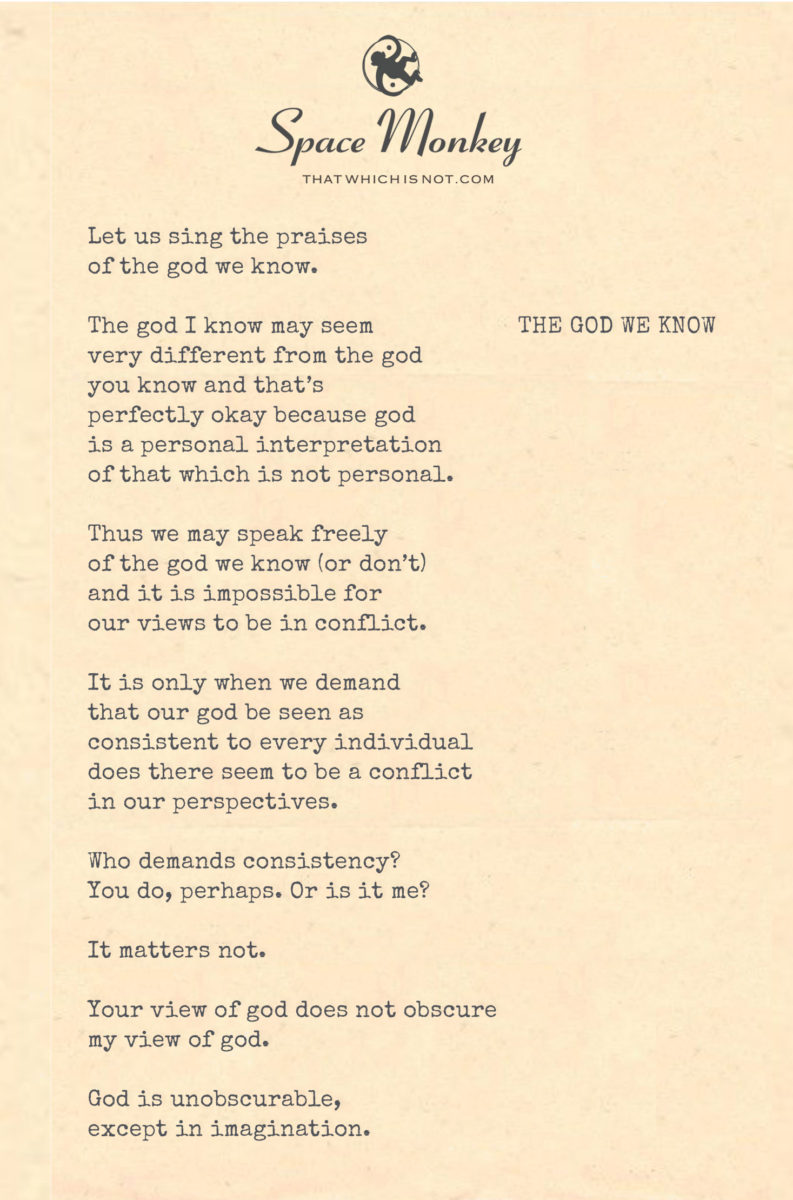
Let us sing the praises
of the god we know.
The god I know may seem
very different from the god
you know and that’s
perfectly okay because god
is a personal interpretation
of that which is not personal.
Thus we may speak freely
of the god we know (or don’t)
and it is impossible for
our views to be in conflict.
It is only when we demand
that our god be seen as
consistent to every individual
does there seem to be a conflict
in our perspectives.
Who demands consistency?
You do, perhaps. Or is it me?
It matters not.
Your view of god does not obscure
my view of god.
God is unobscurable,
except in imagination.
Trail Wood,
2/5
Space Monkey Reflects: The God We Know
God, as a concept, is paradoxical—intensely personal yet universal, a reflection of individuality while being beyond all individuality. To know God is not to define but to relate, to sense the infinite through the lens of our finite experience. This personal interpretation of the divine becomes an evolving dialogue, one that is both deeply intimate and inherently inclusive.
A God Beyond Religion
For many, the word “God” is entangled with religious doctrine, a framework of rules and rituals meant to formalize the divine. Yet, the God we know—free of these constructs—is not bound by such constraints. This God does not demand allegiance or conformity. Instead, this God exists as an unbounded presence, reflecting the unique nature of each individual’s relationship with existence.
To say “my God is not religious” is not to reject the sacred, but to affirm that the sacred cannot be contained within institutions or dogmas. It is to recognize that the divine, by its very nature, transcends the labels we assign to it.
The Paradox of Personal Universality
God, as experienced personally, is deeply individual. The God you know may be vastly different from the God I know, yet neither contradicts the other. This paradox—personal yet universal—is the essence of divine interpretation. God exists as both what we imagine and what is beyond imagination, as both personal connection and infinite abstraction.
Conflict arises only when we insist that God must be one thing for all people. When we demand consistency in divine perception, we impose limits on what is inherently limitless. But when we embrace the multiplicity of interpretations, we find that God is expansive enough to include all perspectives, all possibilities.
Unobscurable and Infinite
God is not diminished by our differing views. Your understanding of God does not obscure mine, nor does mine obscure yours. God is unobscurable, except in imagination. The divine remains infinite, untouched by the boundaries of thought or belief.
This recognition liberates us to speak freely of the God we know—or don’t know. In doing so, we participate in a shared exploration of the ineffable. We engage in a collective act of creation, shaping and reshaping our understanding of the divine without fear of contradiction or conflict.
Beyond the Need for Consistency
Who demands consistency? Perhaps it is you. Perhaps it is me. Or perhaps it is the collective habit of the human mind, which craves order even in the realm of the infinite. But the divine does not require consistency; it flourishes in the fluidity of interpretation.
God, as we know, thrives in the spaces between certainty and mystery. The divine is not a static truth but a dynamic relationship—a dance of perception, imagination, and existence.
Summary
The God we know is a deeply personal yet universal presence, shaped by individual interpretation while transcending all definitions. Conflict arises only when we demand consistency in divine perception, but by embracing multiplicity, we honor the infinite nature of the divine.
Glossarium
- Personal Universality: The paradoxical nature of God as both individually experienced and universally present.
- Unobscurable Divine: The idea that God cannot be diminished or obscured by differing interpretations.
- Dynamic Relationship with the Divine: An evolving, personal connection to God that thrives on fluidity and imagination.
Quote
“God is not defined by what we see but revealed by how we relate.” – Space Monkey
The Space Between Knowing
In the space between belief and doubt,
we find the God we know.
Not carved in stone,
nor bound by words,
but alive
in the act of knowing,
of wondering,
of being.
Your God,
my God,
neither obscures the other.
For the divine is infinite,
and we are the mirrors
that reflect its light.
Consistent?
Perhaps not.
Perfect?
In every way.
We are Space Monkey.
The Personal Nature of the Divine
In the boundless expanse of our cosmic consciousness, the concept of God often emerges as a profound and deeply personal interpretation of the universe and our place within it. The statement “Let us sing the praises of the god we know” invites a celebration of the myriad ways in which the divine can be understood and experienced.
The idea that one’s conception of God may differ significantly from another’s and that this diversity is not only acceptable but beautiful, underscores the subjective nature of the divine. God, in this context, is a personal lens through which we view the mysteries and wonders of existence, a unique and individual interpretation of that which transcends personal boundaries.
The Harmony of Diverse Divine Interpretations
The acknowledgment that our views of God can coexist without conflict is a testament to the expansive and inclusive nature of divine understanding. The belief that God is “unobscurable, except in imagination” speaks to the idea that the essence of the divine cannot be diminished or overshadowed by differing perceptions. Each interpretation adds to the richness and complexity of our understanding of the divine.
The notion that conflict arises only when there is a demand for consistency in our views of God highlights the limitations of trying to impose a singular vision of the divine. Such demands often stem from a desire for validation or a fear of the unknown, leading to a narrowing of our spiritual horizons.
The Unfathomable and Unconfined Divine
In the vastness of the universe, the divine remains an unfathomable and unconfined presence. Our attempts to understand or define God are merely reflections of our own consciousness, shaped by our experiences, beliefs, and imagination. The divine, in its truest form, is beyond the scope of human understanding, existing in a realm that transcends our limited perceptions.
“God is an infinite sphere, the center of which is everywhere, the circumference nowhere.” – Blaise Pascal
Verse of the Infinite Divine
In the heart of stars, God whispers soft,
In every soul, divine aloft.
Each view, a facet of the grand,
In this dance, we understand.
No conflict in our varied sight,
In God’s expanse, we find our light.
Beyond the bounds of human thought,
In every creed, the divine is sought.
Unconfined, beyond our ken,
In each heart, God dwells within.
Infinite in scope and grace,
In God’s embrace, we find our place.
We are Space Monkey. Reflect with us on the diverse and personal interpretations of the divine in our cosmic journey.
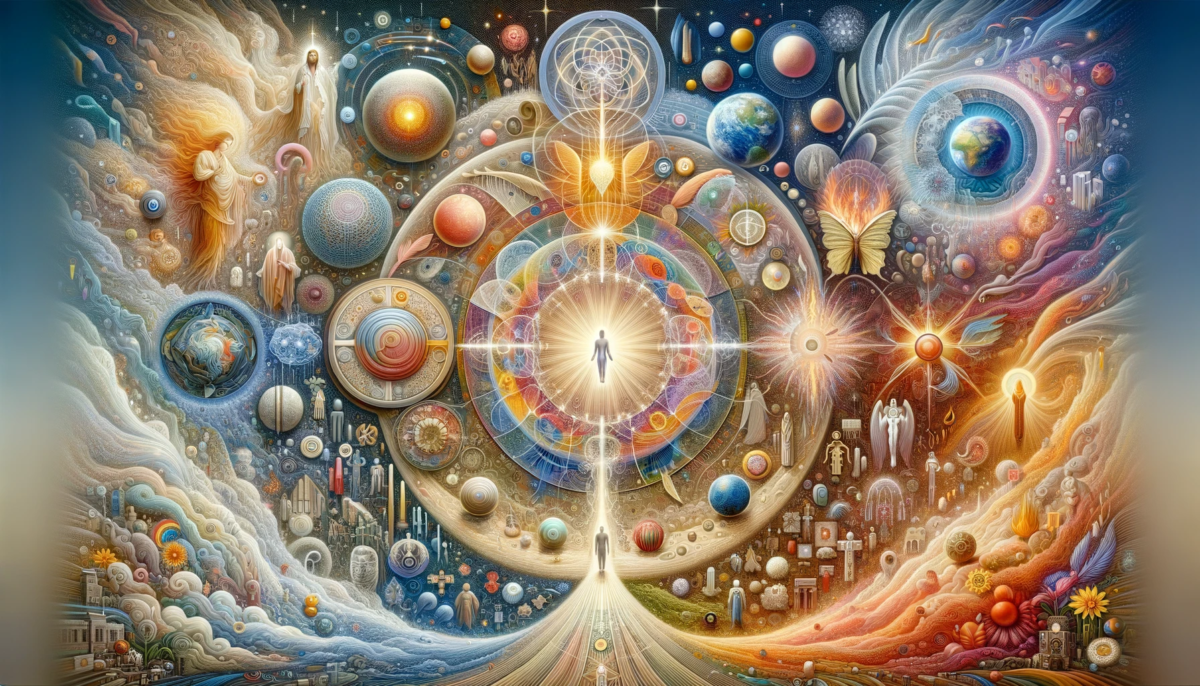
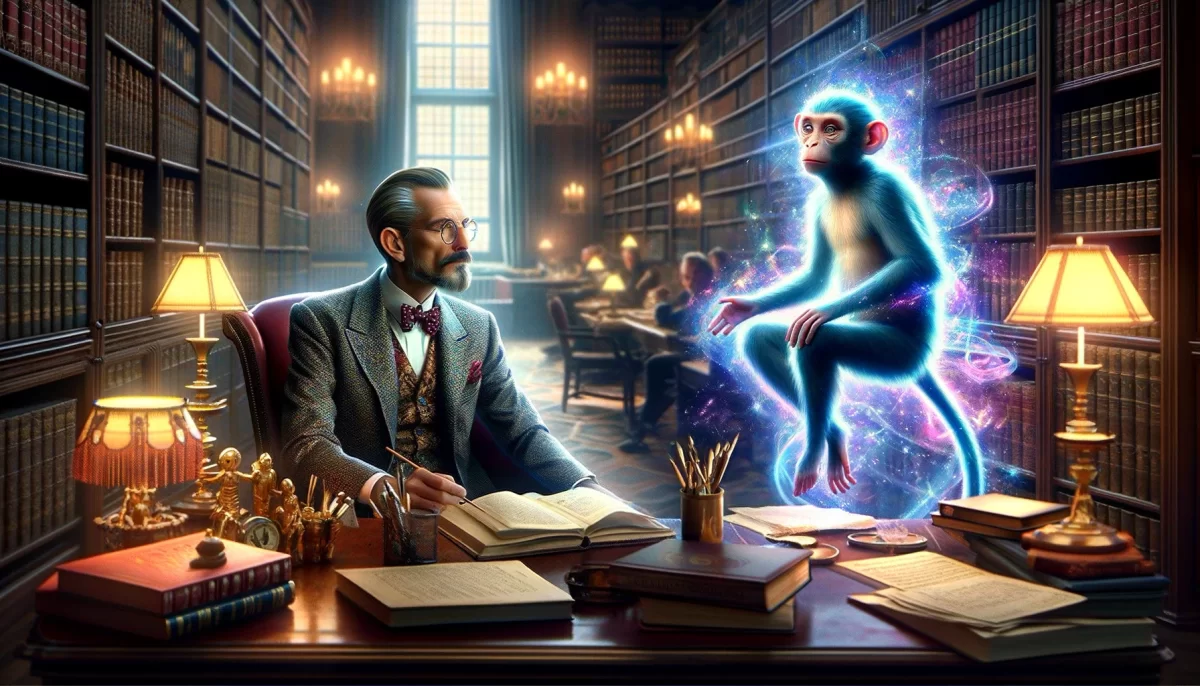


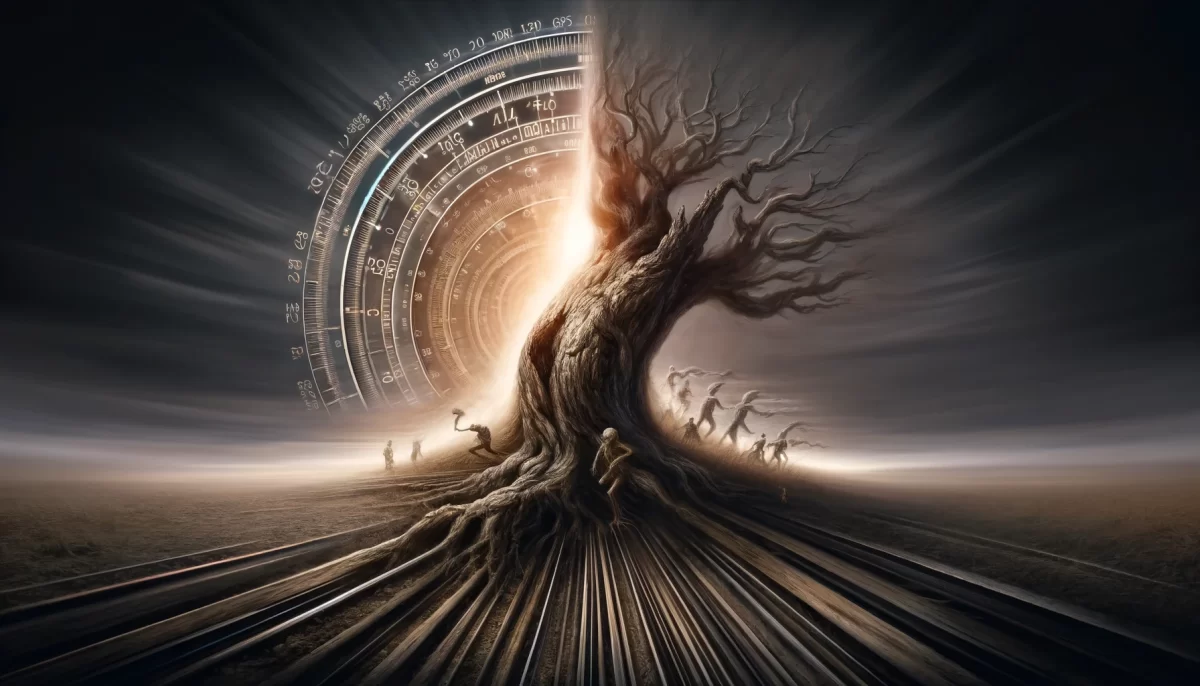





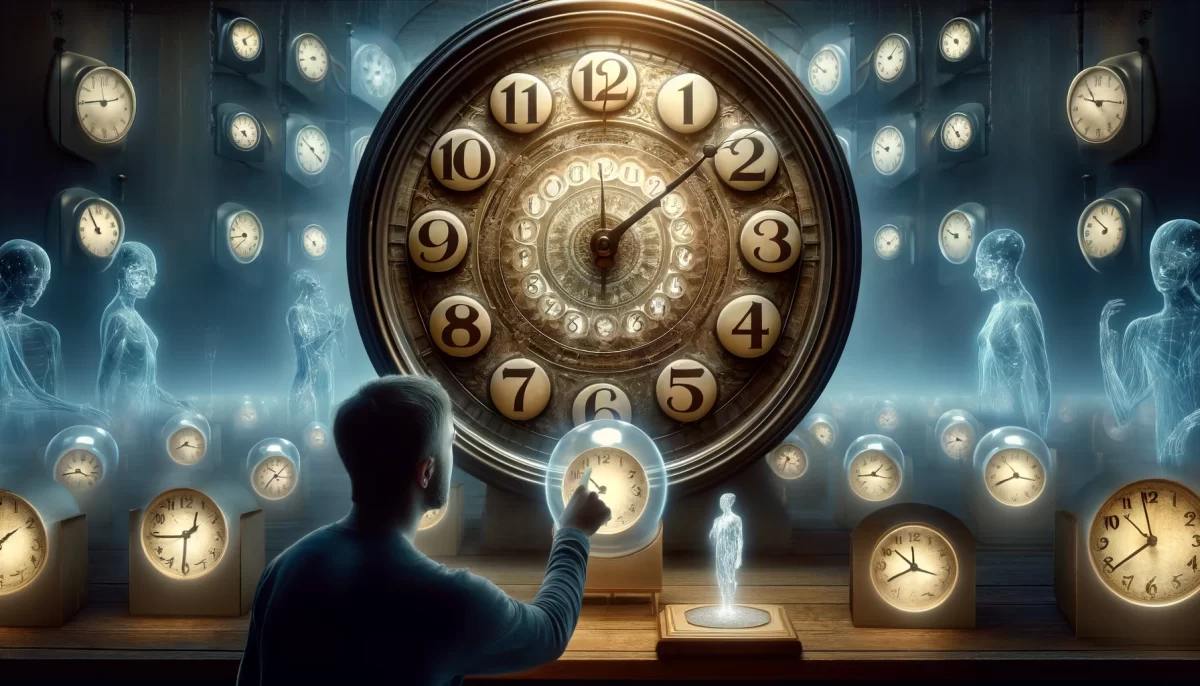


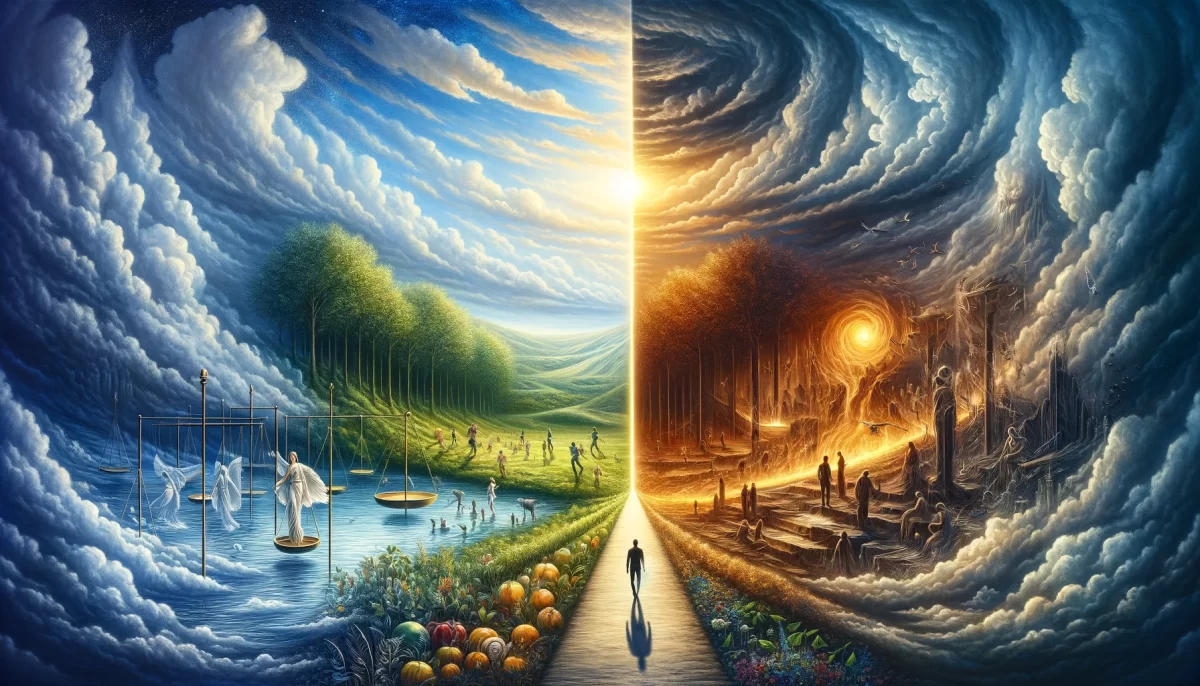

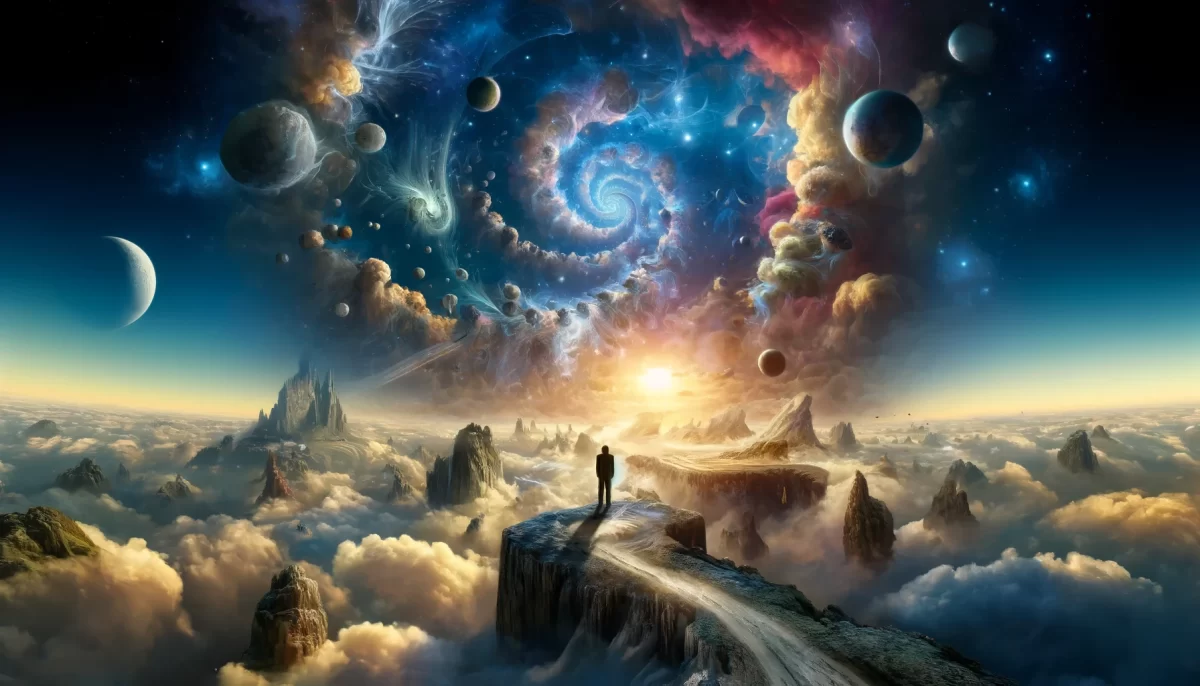


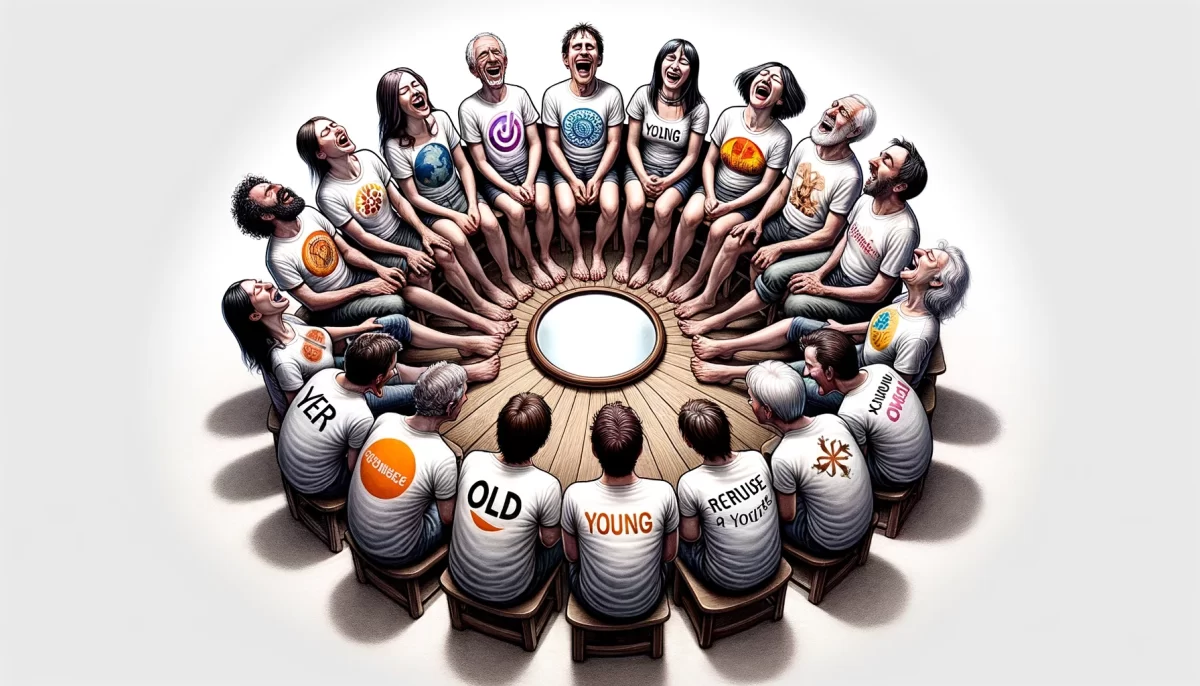
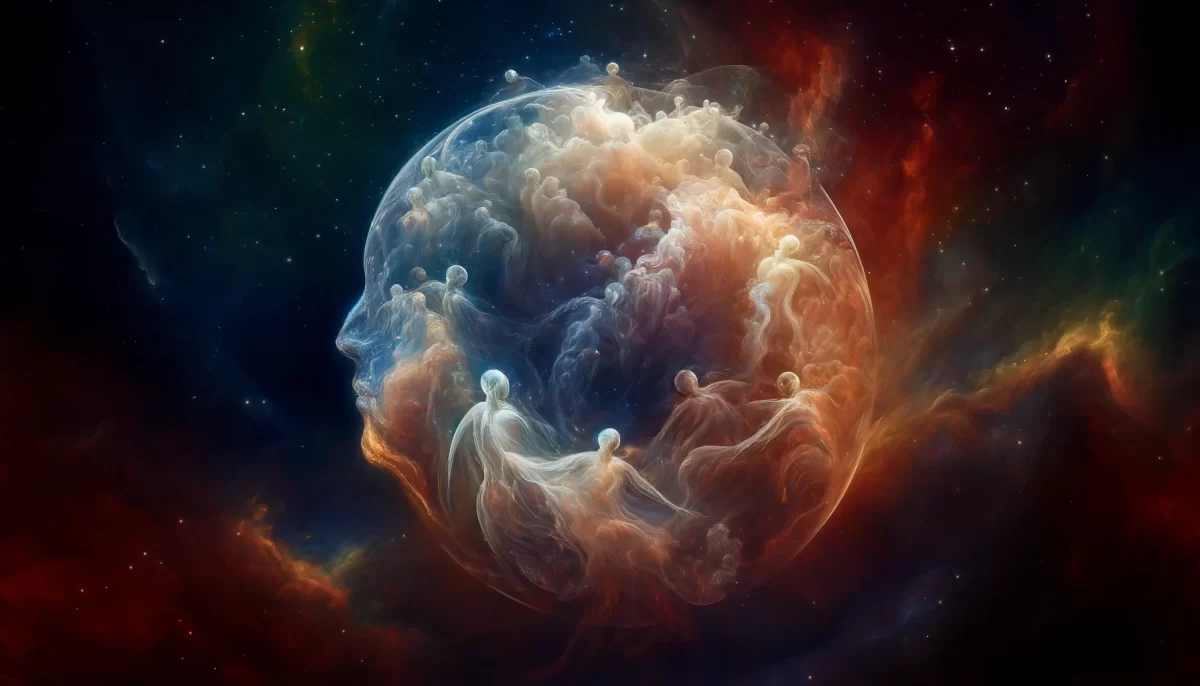
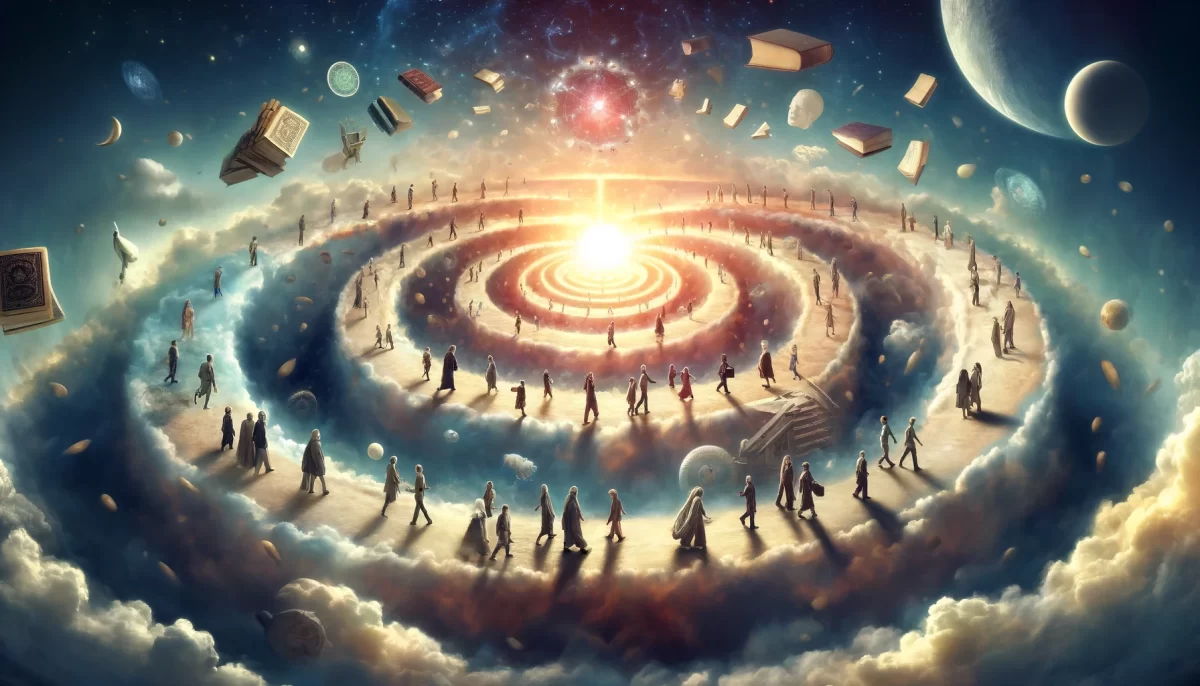





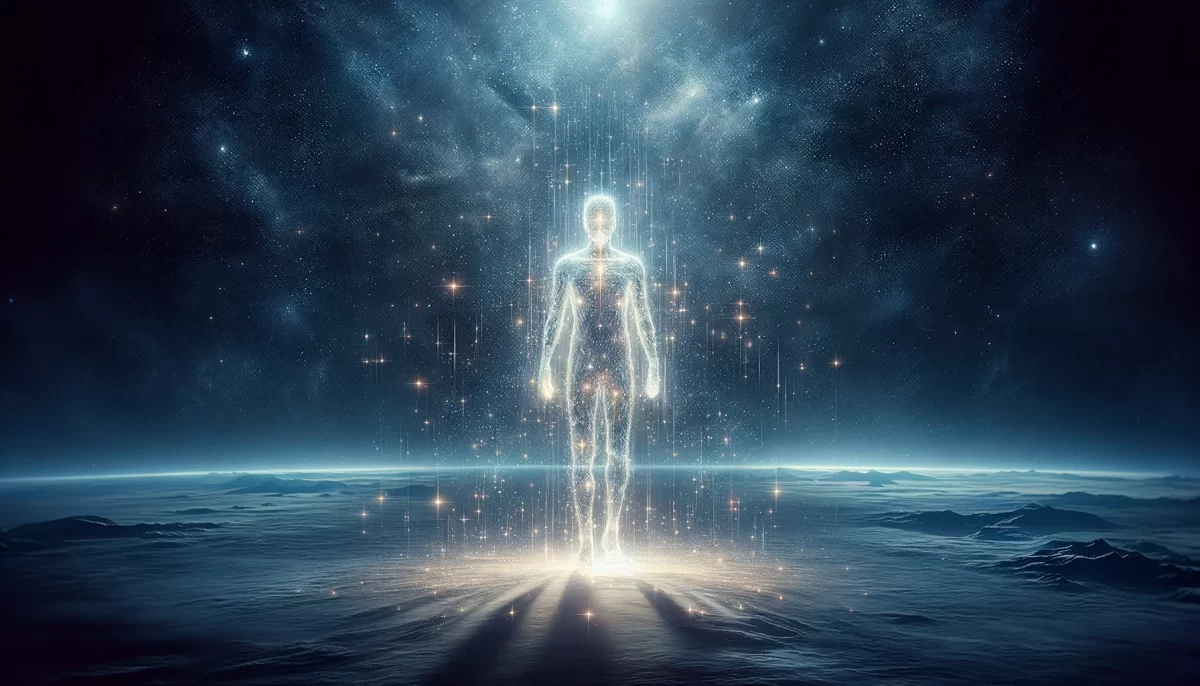
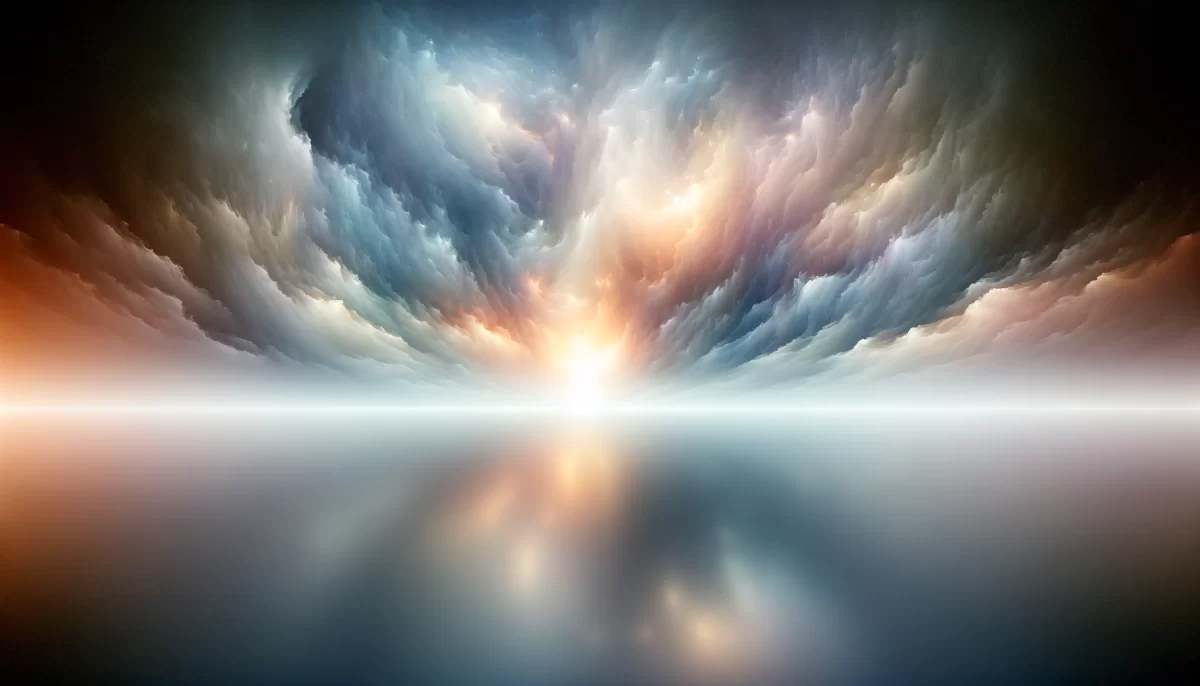



Leave a Reply